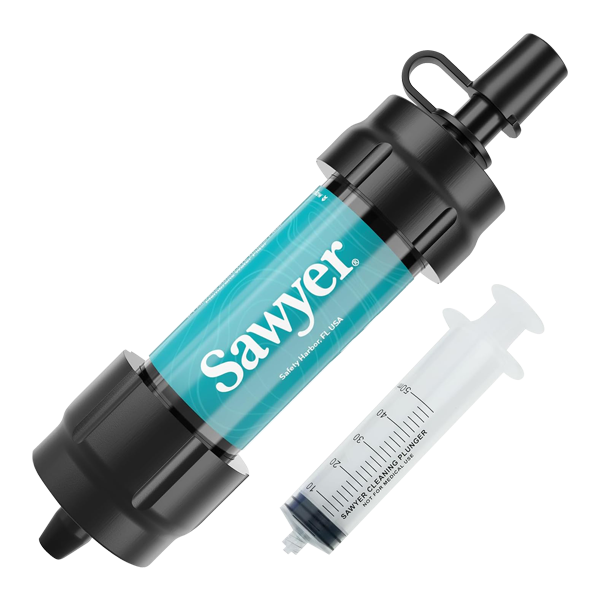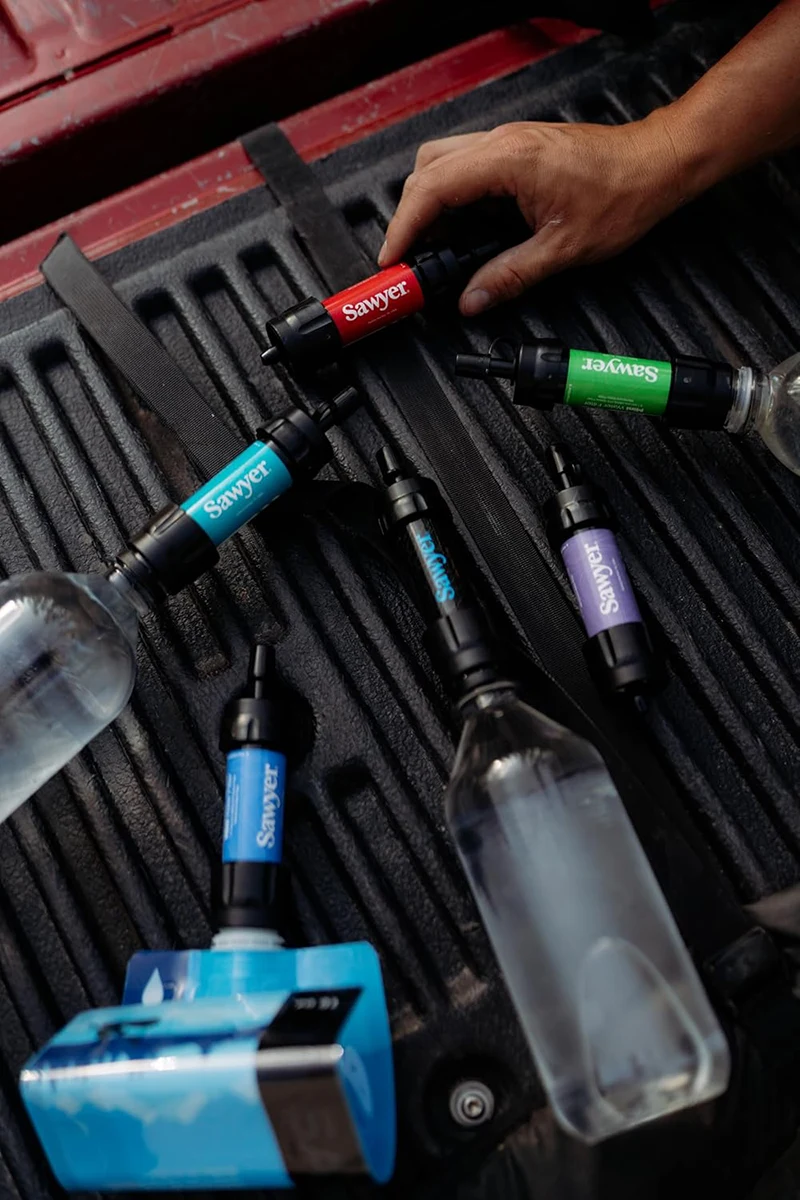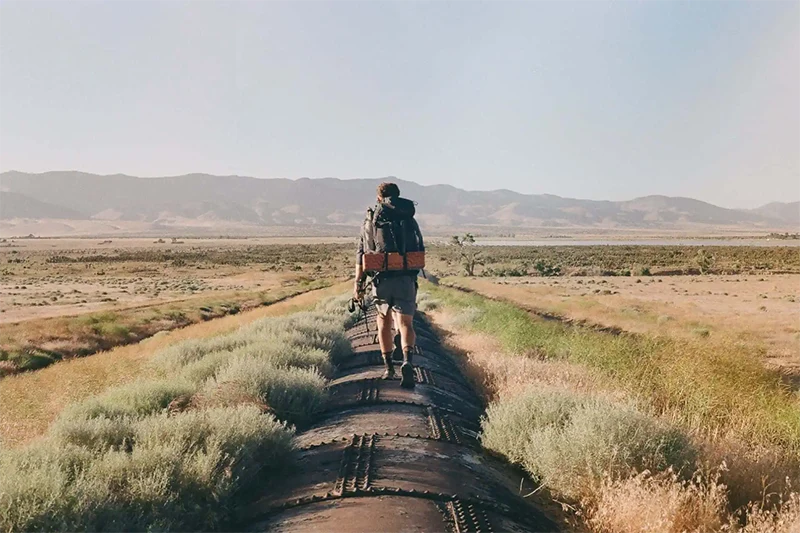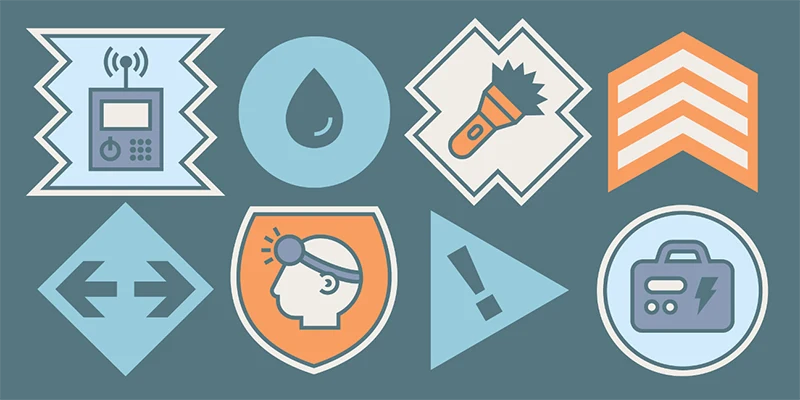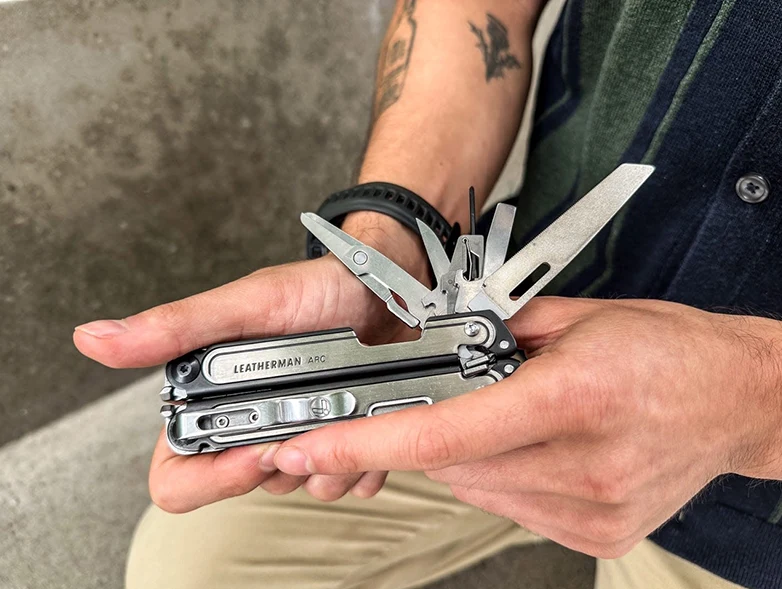Post-Hike Blues: Why Walking Across the Country Makes You Feel So Bad
Post-Hike Blues: Why Walking Across the Country Makes You Feel So Bad

Post-Hike Blues: Why Walking Across the Country Makes You Feel So Bad
YouTube video highlight
Words and photos by Sawyer Ambassador, Heather 'Anish' Anderson.
Read more about the project
Words and photos by Sawyer Ambassador, Heather 'Anish' Anderson.
Recently a friend reached out to me after completing their thru-hike. Their questions were ones I’ve heard many times and experienced myself.
Post-hike depression is nearly universal.
This isn’t just emotional, in fact, it’s rooted in the physical. No matter the source it can be a very confusing and alienating experience. Our interconnectedness now, compared to my first Triple Crown in the early 2000’s can help. But only if we talk about it.
It would have been easy, and expected, if I had ended my first book Thirst: 2600 Miles to Home at the Canadian Border where I had finished the Pacific Crest Trail in record time. But it was important to me to include the aftermath. Mental struggles remain a taboo, even though more and more people are breaking that silence. The most important thing for long-distance hikers to know is you are not alone. Nearly everyone feels some level of blues or even depression following their hike. The most important thing for loved ones of hikers to know is that nothing is “wrong” with your hiker. This is part of the physiological and psychological transition from a life on the trail to a life in society. Please don’t try to fix them.

It’s impossible to address all aspects of the mental challenges of thru-hiking and post-trail depression within the confines of a blog post. In fact, when fellow thru-hiker Katie Gerber and I set out to write our upcoming guide to preparation for long-distance hiking, we were adamant that the mental preparation should be one of the main pillars. (Adventure Ready will be released in March 2022. Preorders available here)
Although a blog can’t go in depth, here are some of the things you might be experiencing (or may experience for those planning an upcoming hike):
- Anxiety
- Sadness
- Irritability
- Mood Swings
- Food Cravings
- Irrational feelings of being trapped or needing to get rid of all your “stuff”
- Grief
- Insomnia
- Lethargy
Unfortunately, there is no magic bullet for dealing with the symptoms of this period of time. Not only is each person unique in their feelings, but also in the effectiveness of their coping mechanisms. Below you’ll find some information on underlying causes and ideas for working through their post-hike blues.
For many years the way I dealt with post-hike depression was by immediately planning the next thru-hike. While it worked for a while, at some point it becomes untenable. However, choosing a goal to work toward can definitely help immensely.
For the previous months of hiking (and varying amount of time preparing) you were mono-focused on a goal. Reaching point B. However, once Point B is reached there is often not another immediate goal (aside from get home). This perspective and drive shift can leave you feeling unmoored and directionless. This is why choosing a new goal can be so helpful. Goals can be physical, travel related, or something completely different. Choosing something you’re looking forward to is all that matters when giving your attention a focus.
Your body has also adjusted its hormonal landscape to compliment many hours of low intensity exercise every day while sleeping and rising in conjunction with solar patterns. This is incredibly healthy and also incredibly different than life indoors. A rapid return to artificial lighting, irregular sleep patterns, and a steep drop off in levels of physical activity will leave your body reeling. Your cravings, moodiness, irritability, insomnia, and other issues are likely all related to the hormonal fluctuations happening as your body struggles to adjust to this 180-degree change in all of its patterns. Spending time in nature, sticking to a regular sleeping pattern, eating nutritious food, and getting some form of exercise (more below) daily can help speed this adaptation along.

A few days ago, you were carrying a full backpack up and down mountains for hours a day. You felt unstoppable. Now, the thought of doing anything except sitting on the couch sounds daunting. This lethargy seems counterintuitive after all the hike entailed. You should be in top shape, not worn out. The reality is, just like the hormonal shifts, your physical body needs time to adjust as well. Often with a steadfast goal in mind, our body can be placed into almost and auto-pilot performative level. You wake up and hike every day because that’s what you’ve programmed your body and mind to do. Once that programming is complete, your body can often seem to change radically into a couch potato. There are likely hormones at play here too. The important thing to do is to listen to your body. Don’t force exercise, but move in ways that feel good (outside is preferable). With proper rest and nutrition, your body will heal and be ready for adventure again.
After several months of feeling a freedom that you may have never felt before—a freedom to be yourself, to do something for yourself, to connect deeply with nature, or to travel under your own terms—stepping back into the life you left behind can often be jarring and feel confining. This experience is often the most difficult aspect of post-hike life. Unlike the hormonal and physical issues, this doesn’t resolve itself with rest and food. This level of malcontent and grief is deeply rooted in the divergence between your trail self and your off-trail self.

Despite not being an easy fix, this aspect is the area where you can find the most growth and personal reward. Likely your experience on the trail unlocked a new understanding of yourself, your abilities, and shifted your perspective on many aspects of life—both large and small. Spending time leaning into this post-hike discomfort, grieving the loss of the trail, and identifying what it is that you most miss can help you make changes to your off-trail life. These changes can bring those things that you most loved about trail life into your life off trail. And that in and of itself can lessen the disparity and relieve some of the sense of loss.
Like all grief, post-hike depression is unique to every individual and must be worked through over time.
There is no instant fix and everyone’s path will look different. The most important thing to remember is that you’re not alone and it’s not something to be ashamed of. The distress you feel is often in direct proportion to how incredible the experience you lived was.
Post-Hike Blues: Why Walking Across the Country Makes You Feel So Bad



Words and photos by Sawyer Ambassador, Heather 'Anish' Anderson.
Recently a friend reached out to me after completing their thru-hike. Their questions were ones I’ve heard many times and experienced myself.
Post-hike depression is nearly universal.
This isn’t just emotional, in fact, it’s rooted in the physical. No matter the source it can be a very confusing and alienating experience. Our interconnectedness now, compared to my first Triple Crown in the early 2000’s can help. But only if we talk about it.
It would have been easy, and expected, if I had ended my first book Thirst: 2600 Miles to Home at the Canadian Border where I had finished the Pacific Crest Trail in record time. But it was important to me to include the aftermath. Mental struggles remain a taboo, even though more and more people are breaking that silence. The most important thing for long-distance hikers to know is you are not alone. Nearly everyone feels some level of blues or even depression following their hike. The most important thing for loved ones of hikers to know is that nothing is “wrong” with your hiker. This is part of the physiological and psychological transition from a life on the trail to a life in society. Please don’t try to fix them.

It’s impossible to address all aspects of the mental challenges of thru-hiking and post-trail depression within the confines of a blog post. In fact, when fellow thru-hiker Katie Gerber and I set out to write our upcoming guide to preparation for long-distance hiking, we were adamant that the mental preparation should be one of the main pillars. (Adventure Ready will be released in March 2022. Preorders available here)
Although a blog can’t go in depth, here are some of the things you might be experiencing (or may experience for those planning an upcoming hike):
- Anxiety
- Sadness
- Irritability
- Mood Swings
- Food Cravings
- Irrational feelings of being trapped or needing to get rid of all your “stuff”
- Grief
- Insomnia
- Lethargy
Unfortunately, there is no magic bullet for dealing with the symptoms of this period of time. Not only is each person unique in their feelings, but also in the effectiveness of their coping mechanisms. Below you’ll find some information on underlying causes and ideas for working through their post-hike blues.
For many years the way I dealt with post-hike depression was by immediately planning the next thru-hike. While it worked for a while, at some point it becomes untenable. However, choosing a goal to work toward can definitely help immensely.
For the previous months of hiking (and varying amount of time preparing) you were mono-focused on a goal. Reaching point B. However, once Point B is reached there is often not another immediate goal (aside from get home). This perspective and drive shift can leave you feeling unmoored and directionless. This is why choosing a new goal can be so helpful. Goals can be physical, travel related, or something completely different. Choosing something you’re looking forward to is all that matters when giving your attention a focus.
Your body has also adjusted its hormonal landscape to compliment many hours of low intensity exercise every day while sleeping and rising in conjunction with solar patterns. This is incredibly healthy and also incredibly different than life indoors. A rapid return to artificial lighting, irregular sleep patterns, and a steep drop off in levels of physical activity will leave your body reeling. Your cravings, moodiness, irritability, insomnia, and other issues are likely all related to the hormonal fluctuations happening as your body struggles to adjust to this 180-degree change in all of its patterns. Spending time in nature, sticking to a regular sleeping pattern, eating nutritious food, and getting some form of exercise (more below) daily can help speed this adaptation along.

A few days ago, you were carrying a full backpack up and down mountains for hours a day. You felt unstoppable. Now, the thought of doing anything except sitting on the couch sounds daunting. This lethargy seems counterintuitive after all the hike entailed. You should be in top shape, not worn out. The reality is, just like the hormonal shifts, your physical body needs time to adjust as well. Often with a steadfast goal in mind, our body can be placed into almost and auto-pilot performative level. You wake up and hike every day because that’s what you’ve programmed your body and mind to do. Once that programming is complete, your body can often seem to change radically into a couch potato. There are likely hormones at play here too. The important thing to do is to listen to your body. Don’t force exercise, but move in ways that feel good (outside is preferable). With proper rest and nutrition, your body will heal and be ready for adventure again.
After several months of feeling a freedom that you may have never felt before—a freedom to be yourself, to do something for yourself, to connect deeply with nature, or to travel under your own terms—stepping back into the life you left behind can often be jarring and feel confining. This experience is often the most difficult aspect of post-hike life. Unlike the hormonal and physical issues, this doesn’t resolve itself with rest and food. This level of malcontent and grief is deeply rooted in the divergence between your trail self and your off-trail self.

Despite not being an easy fix, this aspect is the area where you can find the most growth and personal reward. Likely your experience on the trail unlocked a new understanding of yourself, your abilities, and shifted your perspective on many aspects of life—both large and small. Spending time leaning into this post-hike discomfort, grieving the loss of the trail, and identifying what it is that you most miss can help you make changes to your off-trail life. These changes can bring those things that you most loved about trail life into your life off trail. And that in and of itself can lessen the disparity and relieve some of the sense of loss.
Like all grief, post-hike depression is unique to every individual and must be worked through over time.
There is no instant fix and everyone’s path will look different. The most important thing to remember is that you’re not alone and it’s not something to be ashamed of. The distress you feel is often in direct proportion to how incredible the experience you lived was.
Post-Hike Blues: Why Walking Across the Country Makes You Feel So Bad



Words and photos by Sawyer Ambassador, Heather 'Anish' Anderson.
Recently a friend reached out to me after completing their thru-hike. Their questions were ones I’ve heard many times and experienced myself.
Post-hike depression is nearly universal.
This isn’t just emotional, in fact, it’s rooted in the physical. No matter the source it can be a very confusing and alienating experience. Our interconnectedness now, compared to my first Triple Crown in the early 2000’s can help. But only if we talk about it.
It would have been easy, and expected, if I had ended my first book Thirst: 2600 Miles to Home at the Canadian Border where I had finished the Pacific Crest Trail in record time. But it was important to me to include the aftermath. Mental struggles remain a taboo, even though more and more people are breaking that silence. The most important thing for long-distance hikers to know is you are not alone. Nearly everyone feels some level of blues or even depression following their hike. The most important thing for loved ones of hikers to know is that nothing is “wrong” with your hiker. This is part of the physiological and psychological transition from a life on the trail to a life in society. Please don’t try to fix them.

It’s impossible to address all aspects of the mental challenges of thru-hiking and post-trail depression within the confines of a blog post. In fact, when fellow thru-hiker Katie Gerber and I set out to write our upcoming guide to preparation for long-distance hiking, we were adamant that the mental preparation should be one of the main pillars. (Adventure Ready will be released in March 2022. Preorders available here)
Although a blog can’t go in depth, here are some of the things you might be experiencing (or may experience for those planning an upcoming hike):
- Anxiety
- Sadness
- Irritability
- Mood Swings
- Food Cravings
- Irrational feelings of being trapped or needing to get rid of all your “stuff”
- Grief
- Insomnia
- Lethargy
Unfortunately, there is no magic bullet for dealing with the symptoms of this period of time. Not only is each person unique in their feelings, but also in the effectiveness of their coping mechanisms. Below you’ll find some information on underlying causes and ideas for working through their post-hike blues.
For many years the way I dealt with post-hike depression was by immediately planning the next thru-hike. While it worked for a while, at some point it becomes untenable. However, choosing a goal to work toward can definitely help immensely.
For the previous months of hiking (and varying amount of time preparing) you were mono-focused on a goal. Reaching point B. However, once Point B is reached there is often not another immediate goal (aside from get home). This perspective and drive shift can leave you feeling unmoored and directionless. This is why choosing a new goal can be so helpful. Goals can be physical, travel related, or something completely different. Choosing something you’re looking forward to is all that matters when giving your attention a focus.
Your body has also adjusted its hormonal landscape to compliment many hours of low intensity exercise every day while sleeping and rising in conjunction with solar patterns. This is incredibly healthy and also incredibly different than life indoors. A rapid return to artificial lighting, irregular sleep patterns, and a steep drop off in levels of physical activity will leave your body reeling. Your cravings, moodiness, irritability, insomnia, and other issues are likely all related to the hormonal fluctuations happening as your body struggles to adjust to this 180-degree change in all of its patterns. Spending time in nature, sticking to a regular sleeping pattern, eating nutritious food, and getting some form of exercise (more below) daily can help speed this adaptation along.

A few days ago, you were carrying a full backpack up and down mountains for hours a day. You felt unstoppable. Now, the thought of doing anything except sitting on the couch sounds daunting. This lethargy seems counterintuitive after all the hike entailed. You should be in top shape, not worn out. The reality is, just like the hormonal shifts, your physical body needs time to adjust as well. Often with a steadfast goal in mind, our body can be placed into almost and auto-pilot performative level. You wake up and hike every day because that’s what you’ve programmed your body and mind to do. Once that programming is complete, your body can often seem to change radically into a couch potato. There are likely hormones at play here too. The important thing to do is to listen to your body. Don’t force exercise, but move in ways that feel good (outside is preferable). With proper rest and nutrition, your body will heal and be ready for adventure again.
After several months of feeling a freedom that you may have never felt before—a freedom to be yourself, to do something for yourself, to connect deeply with nature, or to travel under your own terms—stepping back into the life you left behind can often be jarring and feel confining. This experience is often the most difficult aspect of post-hike life. Unlike the hormonal and physical issues, this doesn’t resolve itself with rest and food. This level of malcontent and grief is deeply rooted in the divergence between your trail self and your off-trail self.

Despite not being an easy fix, this aspect is the area where you can find the most growth and personal reward. Likely your experience on the trail unlocked a new understanding of yourself, your abilities, and shifted your perspective on many aspects of life—both large and small. Spending time leaning into this post-hike discomfort, grieving the loss of the trail, and identifying what it is that you most miss can help you make changes to your off-trail life. These changes can bring those things that you most loved about trail life into your life off trail. And that in and of itself can lessen the disparity and relieve some of the sense of loss.
Like all grief, post-hike depression is unique to every individual and must be worked through over time.
There is no instant fix and everyone’s path will look different. The most important thing to remember is that you’re not alone and it’s not something to be ashamed of. The distress you feel is often in direct proportion to how incredible the experience you lived was.





















